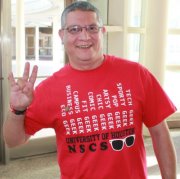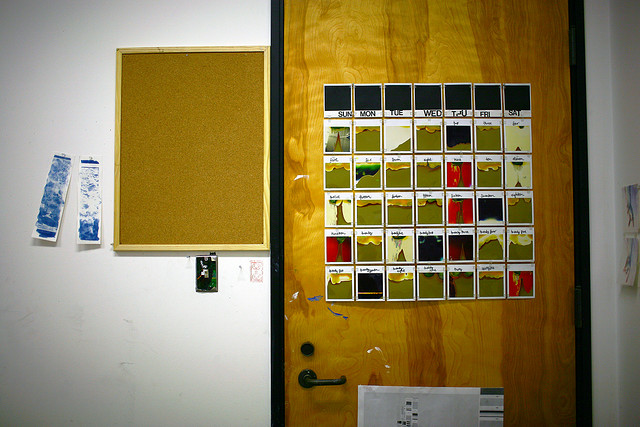Picture this: You are walking on campus and you begin thinking about your day. All of a sudden, you realize an assignment is due tomorrow that you haven’t finished yet, you have a test next week that you haven’t studied for, your phone bill is due and, to top it off, your friend wants you to go out tonight. That is when you feel this overwhelming sensation that makes you want to scream! That mean ugly monster called stress has taken over and you don’t know how to get rid of him. Relax; I have a few tips on how to relive this stress. These methods are some that I use and they may seem out of the ordinary, but they really do work. I have tried many stress relief methods and none of them have worked. When I went through my fifth “stress relief squeeze ball,” I decided to do something different.
Here are my methods:
1. Pace yourself.
Academic success is a marathon, not a sprint. Do not study for everything at the same time. You will overload your brain and it will begin to rebel. Instead, study for one subject at a time for one to two hours depending on the assignment. Once you have completed it, stop for one hour before you go on to the next assignment. This pause will give your brain the rest it needs and you will be able to retain most of the information you covered in your assignments.
 2. Watch one hour of mindless television.
2. Watch one hour of mindless television.
Now you may be thinking, “I don’t have time for that! I have too many things to do!” Well, by following number one you now have an hour study break. You can use that time to watch an episode of your favorite TV show. This will also allow your mind to relax. It gives you a chance to think about something else besides derivatives or supply and demand. This is your opportunity to escape the stress you are feeling by watching someone else go through the hassles of their life.
One of the advantages available to us as college students is the ability to make our own academic schedule. When course selection begins avoid scheduling back to back classes. Give yourself an hour to an hour and a half in between classes to allow you to breathe. This time will let you write down any important dates and maybe even get started on an assignment before your next class. This will also allow you to take your time and not be in a hurry. You will not be forced into sprinting across campus to make it to your next class.
If you have been studying in a stuffy library or dorm room, then this is what you should do. A leisurely stroll in between homework assignments will help you think about what you have just read or allow you to plan for your next assignment. Another benefit would be the fresh air and movement that you need to recharge. This energy boost will help you conquer that next assignment.
These are only a few stress relievers that I use. There are many more and I will be happy to share them with you. Do these methods get rid of all of my stress? No, but they relive stress enough to allow me to study and free up my schedule to be active on campus. Writing this post has taken me about an hour. So what’s next? Pretty Little Liars! (Why…is that weird?)
 Mark Belmarez is currently a senior at the University of Houston where he is majoring in Business and Hotel & Restaurant Management. He is a graduate of Houston Community College where he received his Associate Degree of Applied Science in Hotel/Restaurant Management as well as his Associate Degree of Arts, both with highest honors. While at Houston Community College, he joined The National Society of Collegiate Scholars and served as the VP of PACE for the Houston Community College Chapter.
Mark Belmarez is currently a senior at the University of Houston where he is majoring in Business and Hotel & Restaurant Management. He is a graduate of Houston Community College where he received his Associate Degree of Applied Science in Hotel/Restaurant Management as well as his Associate Degree of Arts, both with highest honors. While at Houston Community College, he joined The National Society of Collegiate Scholars and served as the VP of PACE for the Houston Community College Chapter.
Mark is very much the non-traditional student. He first started his college career in 1994 at Sam Houston State University, but left school in 1996 to work as a general manager of a restaurant. Fourteen years later, he returned to school and enrolled at Houston Community College. It is there that he found a gift for helping students understand the importance of filing a degree plan and only taking classes that they need to take. Since his transfer to the University of Houston, he has been giving advice to other community college students about making the switch from community college to the university.




